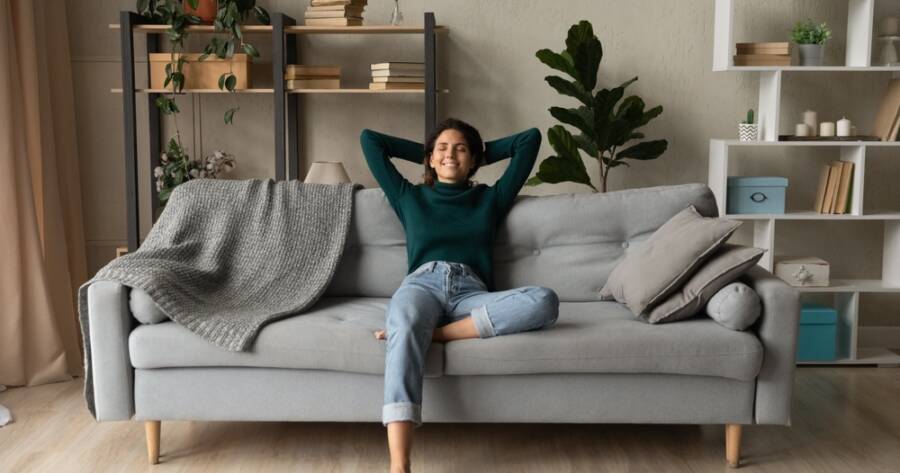If you’ve ever felt calmer after cleaning your kitchen or making your bed, there’s a good reason for it. Our surroundings have a direct impact on how we think and feel. When clutter builds up, it can quietly create stress and distraction, while a tidy space often brings relief and focus. Decluttering isn’t just about appearances—it’s a powerful act of self-care. By creating order in your home, you can also improve your mental, emotional, and even physical health.
1. Decluttering Reduces Stress and Anxiety
A cluttered environment can feel overwhelming, even when we’re not consciously aware of it. Piles of paperwork, messy counters, or overstuffed closets constantly remind us of unfinished tasks. This visual noise can raise stress levels and make it harder to relax.
Decluttering helps clear that mental fog. When your space is organized, your mind doesn’t have to process as much competing information. Many people report feeling lighter, calmer, and more focused after cleaning a single room. It’s not about perfection—it’s about creating a space that feels peaceful and manageable.
A simple way to start is by setting a timer for ten minutes a day and focusing on one small area, like a desk drawer or nightstand. Even small progress can have a big emotional impact.
2. It Improves Focus and Productivity
When your space is full of distractions, it’s harder to concentrate on what matters. Whether you’re working from home or tackling a personal project, clutter competes for your attention. Studies in environmental psychology have found that people tend to be more productive and think more clearly in organized spaces.
By keeping your environment clean and minimal, you remove obstacles to focus. You can find what you need quickly, complete tasks more efficiently, and feel more accomplished at the end of the day. A clear workspace leads to a clear headspace.
Try ending each day with a quick five-minute tidy-up. Putting things back in their place helps you start the next day with a sense of control and readiness, rather than chaos.
3. Decluttering Can Improve Sleep Quality
Your bedroom plays a huge role in your overall well-being. A cluttered sleeping environment can make it harder for your mind to wind down at night. When piles of laundry or stacks of papers are within sight, your brain stays subtly alert, reminding you of unfinished business.
A clean, organized bedroom signals rest and safety, helping your body relax. Removing unnecessary items, keeping surfaces clear, and maintaining a simple layout can all promote better sleep hygiene. Adding small calming elements—like soft lighting or neatly folded bedding—can reinforce the feeling of comfort.
Even small changes, such as clearing your nightstand or keeping only a few essentials in view, can make your space feel more restful and inviting.
4. A Tidy Home Encourages Healthier Habits
Decluttering often has a ripple effect—it encourages other positive behaviors. When your kitchen counters are clear, it’s easier to prepare healthy meals. When your living space is clean, you may feel more motivated to exercise or meditate.
An organized home also saves time, which reduces daily stress and allows more room for self-care. You might find that you spend less time searching for lost items and more time doing things that make you feel good. The sense of control and order you gain from decluttering can extend into how you eat, move, and rest.
Minimalism doesn’t mean living without—it means living with intention. When every item in your space serves a purpose, you naturally begin to make more intentional choices in other areas of life too.
5. It Supports Better Physical Health
Dust, mold, and allergens tend to collect in cluttered spaces, which can contribute to respiratory problems and allergies. Regular cleaning and decluttering can improve air quality and make your home safer. Open spaces are also easier to clean, helping prevent buildup of dust and bacteria.
In addition, the act of decluttering itself is physical activity. Sorting, lifting, and organizing can get you moving and even count as light exercise. While it may not replace a workout, it contributes to better circulation and flexibility—especially if done regularly.
The process also helps you stay connected to your environment. When you handle your belongings mindfully, you’re more likely to notice maintenance issues or safety hazards that might otherwise go unnoticed.
Creating Space for Wellness
Decluttering is more than a chore—it’s a way of caring for your mind and body. By reducing stress, improving focus, supporting healthy habits, and promoting better sleep, an organized space becomes a foundation for overall wellness.
You don’t have to tackle your whole home at once. Start with one area, one drawer, or one corner. Each small improvement adds up, helping you build an environment that supports calm, clarity, and health. In the end, a clear space isn’t just easier to live in—it’s a reflection of a clearer, healthier you.

